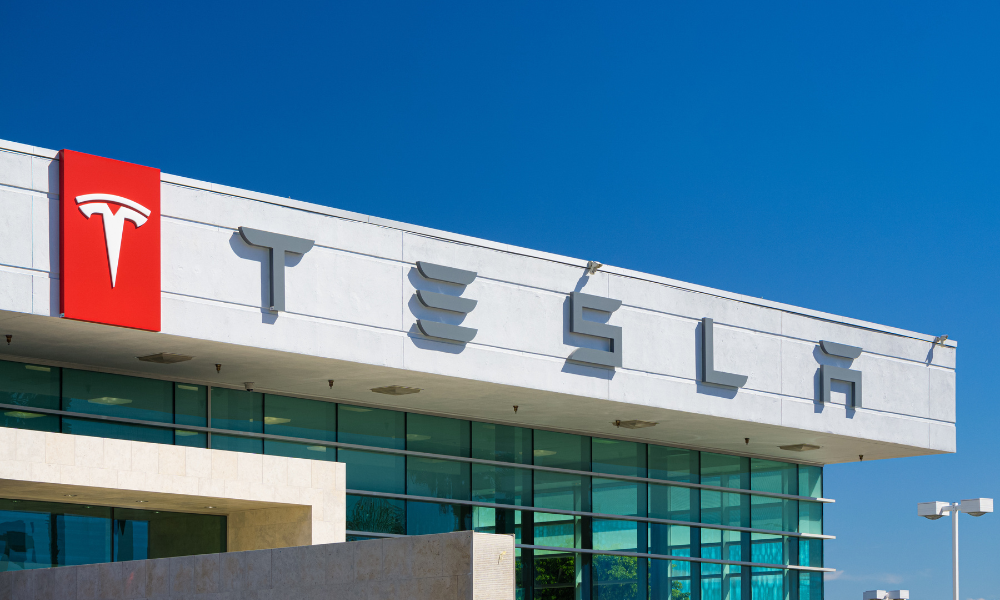Removing internal trade barriers, tax reform priority for small business owners: managing partner

Confidence among Canadian small business owners is at a scarcely-seen low at the moment, with the devasting impact of US President Donald Trump’s tariff policy piling onto years of stagnant growth in the Canadian economy.
But the policies laid out by newly-elected Prime Minister Mark Carney could see some renewed optimism among small business owners, as the former banker has laid out a plan which holds a heavy focus on promoting internal trade and alleviate some of the pain felt from Trump’s tariffs.
Daryl Ching, managing partner at Vistance Capital Advisory, says most small business owners – many of whom are investors themselves – have had to bring their operations to a halt as volatile market conditions make it near impossible to find a glimpse of clarity.
Ching points to the high number of business insolvencies throughout 2024, which even eclipsed numbers during the financial crash in 2008. He says the new Liberal government has an opportunity to inject confidence into the business community by lowering red tape and interprovincial trade barriers.
Ching highlighted five priorities he sees as ways to aid Canadian small business owners. He says the most influential factor in voters’ minds was the way the next Prime Minister would tackle the Trump question, and believes Carney’s “elbows up” stance resonated more with voters than Poilievre’s more diplomatic negotiation tactics.
“The conservatives felt optimistic about hammering out a trade deal with Trump, whereas the Liberals were taking a much harder stance saying they’re focused on retaliatory tariffs,” he said. “What probably skewed the election result was this particular issue where the Liberals were taking a tougher stance. And I think Poilievre’s first response was more aligned with Danielle Smith of diplomacy.”
The Conservative platform was more attractive for many due to its promises to drop the industrial carbon tax and lower the income tax bracket by 2.25 per cent according to Ching, but says the Liberals held the upper hand on its benefits for businesses affected by Trump’s tariff policy, promising $6.5 billion in relief.
Both parties were relatively aligned with their promises to reduce red tape according to Ching, though added that the Conservatives’ “culture” of deregulation gave them the upper edge for many voters. He also said diversifying trade partners was another priority, describing Carney’s plans to find new partners in Europe and Asia as astute, while pointing to Poilievre’s “bizarre” focus on faraway Australia and New Zealand. Another point voters looked for was workforce training according to Ching, who says the Conservatives promised to add 350,000 new trades workers, while the Liberals focused on trade apprenticeships and skills programs in manufacturing.
The reduction of interprovincial trade barriers will benefit some industries more than others according to Ching, who says the interprovincial red tape has been a major factor in the Canadian economy’s overreliance on the US in the first place. He points to an estimate from former Minister of Transport and Internal Anita Anand that suggested this move could potentially bolster Canada’s GDP by $200 billion.
“It differs between industries. There's certain industries that are more impacted – food, transportation, construction – they will certainly tell you that it would be a game changer,” he said. “When you see the amount of red tape required for a country that kind of has a small population based on geography, a lot of Canadian companies say, ‘I'm just going to go in the US, I deal with one federal regulator, and I've got access to a population of 350 million, whereas in Canada, it's too much trouble for me to access this 40 million population.’”
For business owners, Ching says proceeding with caution is the best option at the moment. He notes that those who trade with the US and China – Canada’s two largest trading partners – should be pivoting their strategy swiftly.
“Hope for the best, expect the worst. I know this is cliche, but we have an unpredictable president that's got a gun to our head,” he said. “I think assuming that things will just work out is not the right approach, especially if you are in any materials that have been brought up in the auto industry and steel in particular. If you import from the US or if you import from China, you have to make an adjustment immediately.”
While Ching has faith in the negotiating skills and experience of Carney – who pitched himself as a crisis manager throughout the campaign – he adds that Trump’s unpredictable nature makes it incredibly challenging for anyone regardless of their credentials.
“Carney is the one of the best options that we have for a Canadian leader to go up against Trump with his depth of experience. I think he's the right guy to do it, whether he can be successful is anyone’s guess,” he said. “We've got a president that doesn't listen to anybody. He makes decisions on a whim, changes his mind and pulls them back again. How do you negotiate with somebody like Trump? You could be the best negotiator in the world, but when you're dealing with somebody irrational, I don't have very much confidence at all that anything can be done.”



